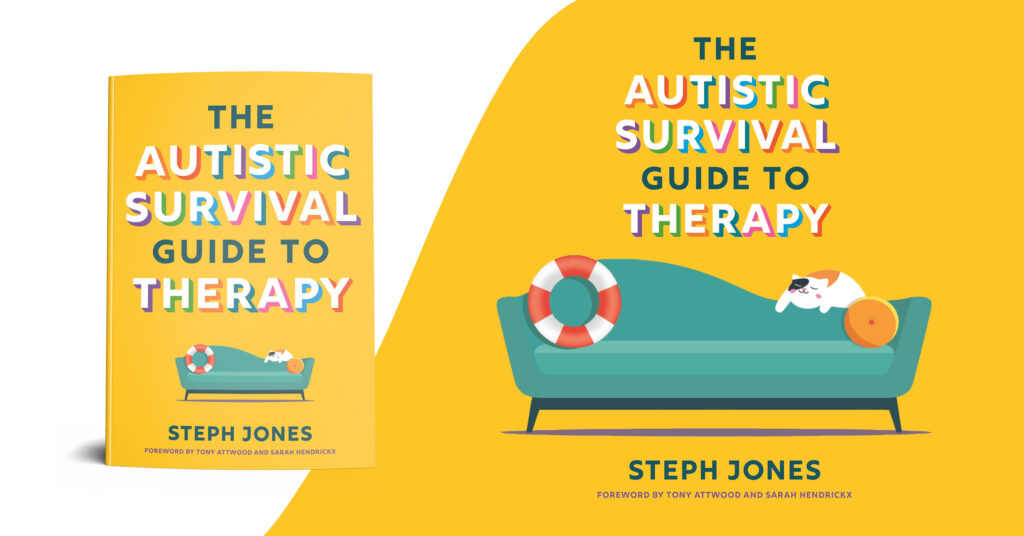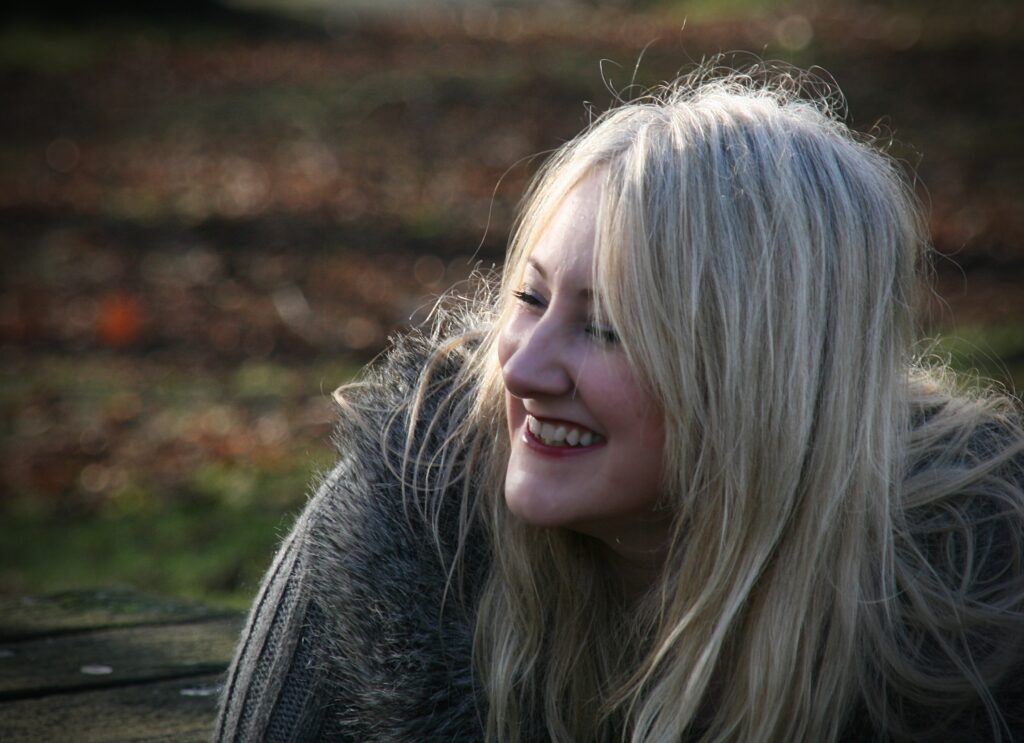Author Q&A with Steph Jones – The Autistic Therapist

Congrats on the release of your book Steph! Can you tell us how it came about?
Aw, thanks very much! Well, I guess the main thing that inspired me was finding out I was autistic at the age of forty, and that’s after ten years of being a therapist myself, nine private therapists, thousands of pounds wasted, twelve different doctors and a hefty amount of trauma caused by believing that I was beyond repair. Had an amazing client of mine not come to session one day expressing how she thought she might be autistic, quite honestly I still wouldn’t know, as they don’t routinely teach you about neurodiversity on psychology training courses (yeah, I know, don’t even ask).
Why have you called it a ‘Survival Guide’ to therapy, how can therapy be dangerous?
Because it’s a jungle out there!! Finding a therapist can be really difficult for most people – what do their skills and qualifications mean? How will they help me? Who will I get on with the best?! But for neurodivergent individuals like myself (with an entirely different way of thinking, perceiving, feeling and learning) it can be even more worrying particularly if the therapist doesn’t understand how hard it is living (and usually masking) in a world set up for neurotypical people. A colleague of mine estimated that around 40% of her clients are undiagnosed autistic, and that’s a lot of people to potentially misunderstand, medicate and misdiagnose with all manner of conditions such as post-traumatic stress disorder, borderline personality disorder, bipolar, schizophrenia and attachment issues. In my work I’ve met literally hundreds of people who have been failed by mental health services and needed therapy to get over past therapy. It’s not that clinicians are out there with bad intentions necessarily, it’s that what we say often gets lost in translation.

What can readers expect to find inside the book?
It’s really two books in one – my own story of being late diagnosed and deeply struggling in therapy, plus a detailed exploration of counselling in general – what can we expect, how do we know if we’re being helped or harmed, what are the red flags of a dodgy therapist, which approaches work with a neurodivergent brain (newsflash, not all of them do, even if they’re advertised as ‘gold standard!’)? It’s packed with up to date research, advice from dozens of neurodivergent therapists and sprinkled with the experiences of hundreds of autistic individuals who contributed to the book. It’s really been a massive project to co-ordinate but I feel if it can help just one person avoid what I’ve gone through, then my work here is done!
Who’s the book for? Did you have a particular readership in mind when writing?
It was actually my Instagram followers (autistic_therapist) who suggested I write it in the first place since I had been running posts for a while. People felt it was a book that needed to be written and I realised there wasn’t anything out there (especially by a neurodivergent author and therapist) really pulling all this stuff apart and giving us a voice. It’s for everyone – the undiagnosed, diagnosed, self-diagnosed and the ‘still-trying-to-figure-it-outs’.
I have been lucky enough to have forewords written by one of my favourite autistic authors, Sarah Hendrickx, and the enigmatic Professor Tony Attwood, and decided to do a section at the back of the book for professionals in order to help them improve their neuro-affirming approaches (not just tokenistic but really listening to what the community wants!)

If readers take just one thing away from reading this book, what would you like it to be?
That they’re not alone in any of this. That therapy is bloody hard at the best of times, let alone when we don’t have a good match, feel misunderstood and aren’t quite sure what the hell is going on.
Why did you choose to publish with JKP?
They are the number one publisher when it comes to supporting neurodivergent authors, you only have to look at the incredible titles they’ve produced. I can’t tell you the amount of times I’ve read an amazing book, turned it over and realised it was a JKP! The team have been nothing but amazing throughout the whole process – incredibly supportive, informative, and helping me see the woods for the trees (which isn’t always easy when you’re a detail obsessed creature!).
Where can people who want to know more find you?
The best place to find me these days is over on Instagram (autistic_therapist) where I’m usually camped out, or over at https://linktr.ee/autistic_therapist where you can find all manner of links, projects, resources and articles I’ve written.
The Autistic Survival Guide to Therapy is available now.